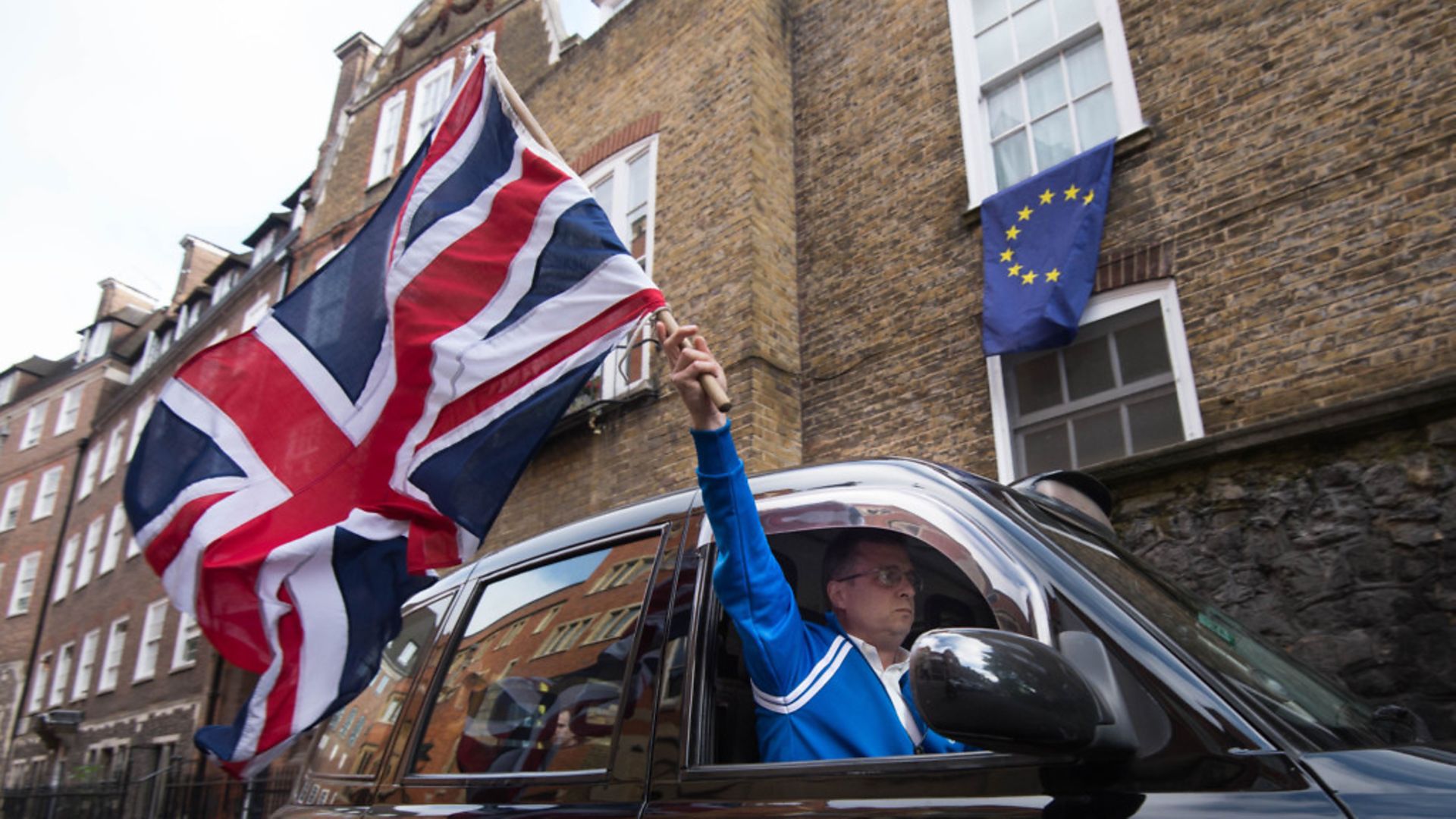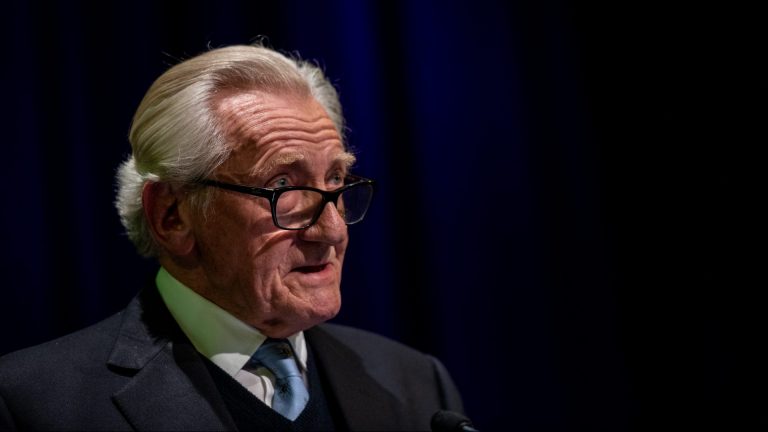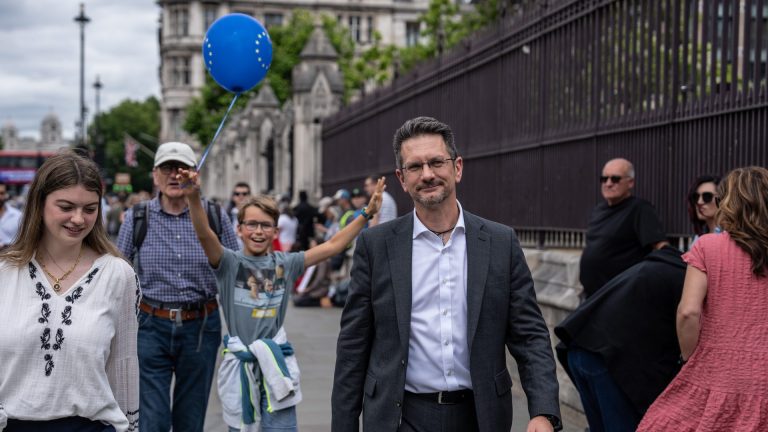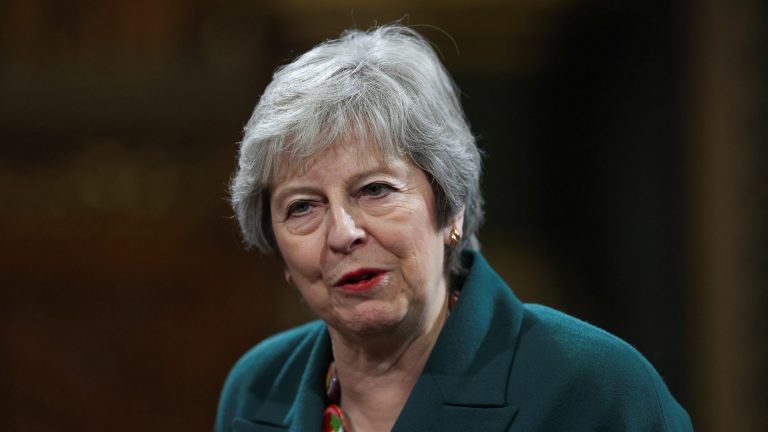About half the future Labour cabinet were on show over the weekend at the annual Progressive Britain conference. The elephant in the room also attended, but was not remarked upon.
The word “Brexit” could not be seen on the conference agenda or papers. The word “Europe” wasn’t there either.
Progressive Britain is organised by a Labour grouping originally set up to oppose the primitive socialism-in-one-country ideology developed by Tony Benn in opposition to Margaret Thatcher’s Hayekian neo-liberalism which took over the Tory Party after 1980.
A version of Hayekism came back to life after the 1997-2010 Labour government with David Cameron’s austerity economics, endorsed by rightist Liberal Democrats, culminating in Liz Truss’s full-blooded attempt to impose the discredited Austrian’s theories via her radical right budget during her brief premiership.
Central to the Benn thesis, fashioned with the help of his aide, Jon Lansman, who went on to set up the Jeremy Corbyn-era Momentum movement as a quasi party within Labour was the belief that the European Community – now Union – was the mortal enemy of all progressive politics in Britain.
While Thatcher forged ahead in creating the single market, based on free movement of people, goods and capital and backed the appointment of its principal architect Jacques Delors as the European Commission president, Labour went into full anti-European mode.
Benn, Michael Foot and Peter Shore denounced Europe as a capitalist cartel, with a bureaucracy of high priests in Brussels, sucking all democracy out of Britain to benefit German carmakers and French farmers.
Younger Labour MPs like Neil Kinnock, Robin Cook and Jack Straw who opposed the entry of poor, largely agricultural economies like Greece, Spain and Portugal into the EC 40 years ago joined in this crusade against Europe, culminating in Labour’s Brexit manifesto in the 1983 general election which called for a referendum to withdraw from Europe.
By 1990 Kinnock, Cook and Straw had sensibly dropped their anti-Europeanism. Their baton was picked up by Boris Johnson, William Hague and Cameron, who imposed a referendum which was virtually guaranteed to result in a populist rejection of Europe – especially among working class and older voters who had been told for years by Labour MPs that Britain suffered from being part of Europe.
From 1970 until 2020, Europe featured as a major item in all Labour policy-making, debates, and internal party divisions. Now it has been eradicated from the Labour agenda.
And when the likely incoming Labour cabinet plus current and future Labour MPs were on display at the Progressive Britain conference, with its 20 different policy break-out seminars as well as strong plenary speeches from David Lammy, Alison McGovern and Wes Streeting, it barely got a mention.
Lammy briefly referred to Labour seeking a “security or defence pact” with the EU, language also used by the impressive incoming defence secretary John Healey. But that already de facto exists in Nato, whose headquarters in Brussels is a hive of political as well as defence activity. Labour MPs sit on the parliamentary assembly of Nato with EU colleagues.
To be sure, President Macron of France or Chancellor Scholz of Germany will welcome a form of words between a Labour government that has dropped the visceral hostility against cooperation with Europe associated with the Brexit-era Tory ministers. But the practical work in the defence/security field is undertaken already within a Nato framework.
Such a defence pact while welcome does not restore a single sovereign right that British citizens enjoyed inside the EU. There is no other region in the world where citizens of independent sovereign nations share so many common rights as exist across the Channel and Irish Sea.
No one expects Labour to declare that the party is about to embark on a rejoin path. A decision was made by 37% of registered voters in 2016. That’s that.
But a week later the Leave campaign’s figurehead Boris Johnson wrote in the Daily Telegraph that Brexit did not mean losing the right to live, study, work or retire in Europe. He also said the UK would enjoy full access to the single market and customs union. OK, he was lying. What’s new?
Since then GDP has declined by 4-5%. The London Stock Exchange is losing ground daily as serious firms do not want to raise money in an economy which isolates itself from the world’s biggest market.
Opinion polls show clear majorities agreeing Brexit was a mistake, with big majorities for reversing the decision amongst young voters who will be vital if Labour is to win a second term.
Serious papers report from different economic sectors, industry and trade federations on the damage Brexit is causing. Each week, Peter Foster writes an excoriating report in the Financial Times based on what different business leaders tell him.
This is not the 2016 Brexit Britain voted for. It was not on offer in the 2017 or 2019 elections. This is the post-2020 Brexit negotiated with a level of incompetence and national self-harm never before seen in centuries of trade negotiations undertaken by Britain.
Even if all agree the Europe question is not for this election, it remains odd that no-one in on the Labour front bench is ordered, even allowed to castigate the incompetence of Tories in weakening the UK economy.
After the election, Labour will own Brexit. It will be no use finger-pointing at Johnson, Theresa May or Rishi Sunak. Economic deciders and millions of ordinary citizens will ask: “What is a Labour government going to do to repair this national wrong turning?
May said her task was “to make Brexit work.” She failed, just as Johnson failed when he said he could “get Brexit done.” He rolled over for Michel Barnier in his haste to reach any deal, even one that has turned out to be very bad for Britain.
Sir Keir Starmer has his three no’s – to the single market, the customs union and freedom of movement. That’s fine for the election and as much as the Brexit market can probably bear for the time being.
But the Europe question has not been answered and Labour will need more convincing responses and more serious thinking once it is in charge.
Denis MacShane was Labour’s minister for Europe under Tony Blair. His latest book is “Labour Takes Power: The Denis MacShane Diaries 1997-2001”. (Biteback)









